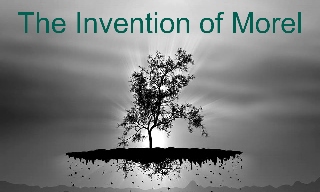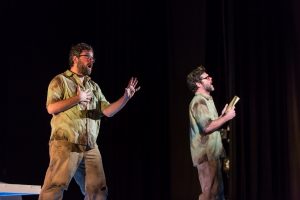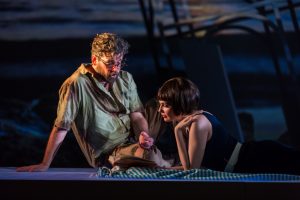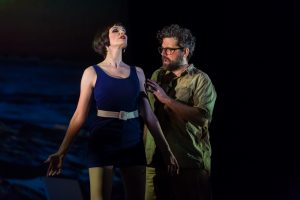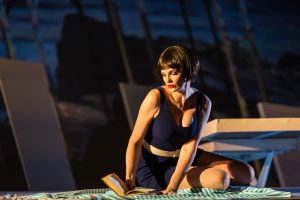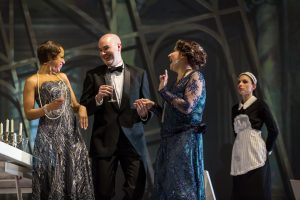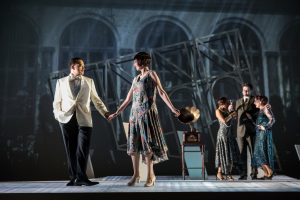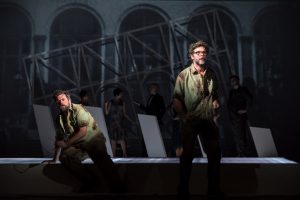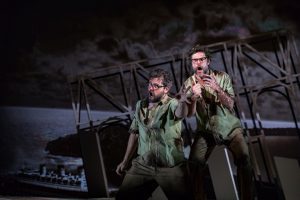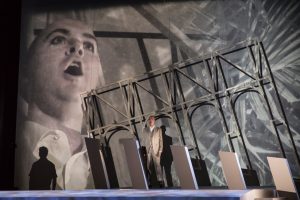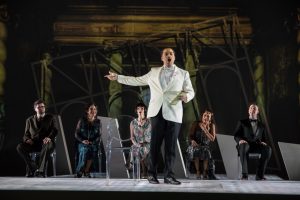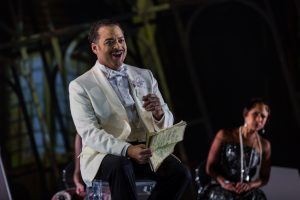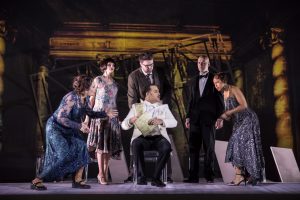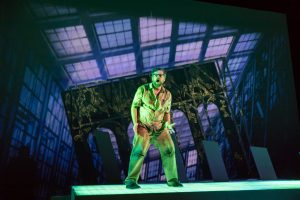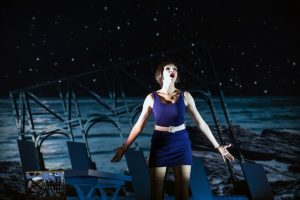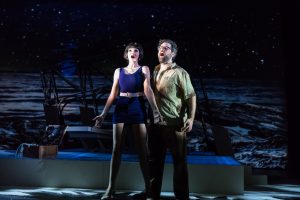COPELAND’S MOREL LACKS INVENTION
Four years ago, Long Beach Opera (Artistic and General Director Andreas Mitisek’s other company) staged Stewart Copeland’s The Tell-Tale Heart, giving the one-act opera it’s U.S. debut. Based on the short story by Edgar Allan Poe, it was an undeniably madcap production with little to recommend itself beyond sheer novelty. As one would expect from the former drummer of The Police, Copeland’s score was heavy on rhythm and light on melody. His latest opera, The Invention of Morel, follows suit. This time, Chicago Opera Theater has the dis/honor of giving Copeland’s work its world premiere.
The titular character of this strange tale of love and immortality is an evil genius obviously likened to the titular character of H. G. Wells’s novel The Island of Doctor Moreau. Morel has invented a machine that records his victims in an eternal loop. When a fugitive lands on the island and falls in love with Faustine, one of Morel’s beautiful victims, he soon discovers that all is not as it appears. Since he is the narrator, we see everything through the fugitive’s eyes.
In addition to writing the score, Copeland co-wrote the libretto with director Jonathan Moore. They have mostly succeeded in dramatizing Adolfo Bioy Casares’s same-titled 1940 novel into a story, but as poetry, the libretto will not win any awards; the language is rather clunky throughout and, in places, trite. For example, when the narrator describes his initial impression of Faustine, he sings “It was love at first sight.” There is also an extremely facile exchange about religion and science.
90 minutes without intermission might sound short, but it feels interminable. Part of the problem is the repetitious plot. More annoying, however, is Copeland’s nearly tuneless score, which quickly begins to grate on the ears, not to mention the nerves. His vocal writing is much improved from The Tell-Tale Heart, but it still lacks color and melody. And his orchestration lacks subtlety; dramatic and climactic scenes are a riot of volume and percussion.
Yet perhaps one of the oddest musical features of this production was the sound coming through the speakers, which did not blend at all well with what was being played in the pit or sung on stage. At times, it was pre-recorded ambient sounds, such as rainfall, but at other times, it sounded as though singers backstage were doubling those on stage. More generally, The Studebaker Theater seems to be an acoustic challenge, where some voices do not carry as they should.
One unusual similarity between this and LBO’s previous Copeland production is the doubling of the main character. In this case, the narrator tells the story while the fugitive acts it out. Strikingly, the actors (Andrew Wilkowske and Lee Gregory) who play these roles look uncannily alike and work together harmoniously. Their strong performances are aided by compelling characterization, but the opera’s female roles are superficial by comparison. Valerie Vinzant, who performed a similar eye candy role in last season’s Lucio Silla, is the beautiful Faustine. Her vocal lines are the most melodic, but seldom include words and are often sung over by the fugitive/narrator. And among the cast’s supernumeraries are three young ladies that play blind prostitutes! Scott Brunscheen and Kimberly E Jones, who both appeared in this season’s ridiculous production of The Fairy Queen, play supporting roles, as does David Govertsen, who recently played Priam in Lyric Opera’s Les Troyens. Neither of the three, however, is given much opportunity to shine.
Mitisek picks up the baton here, leaving the direction to Moore, who makes the most of the opera’s bizarre story, although he is not helped by Alan E Muraoka’s bland set design, the most notable features being a trap door filled with green light; a coffin-shaped platform that rises from the ground to serve as a table and a bed, among other things; and a vague window-like frame that distorts Adam Flemming’s video projections. The result is a multimedia production full of sound and fury, signifying nothing.
photos by Liz Lauren
The Invention of Morel
Chicago Opera Theater
Studebaker Theater, 410 S. Michigan Ave.
ends on February 26, 2017
for tickets, call 312.704.8414 or visit COT
for more shows, visit Theatre in Chicago
